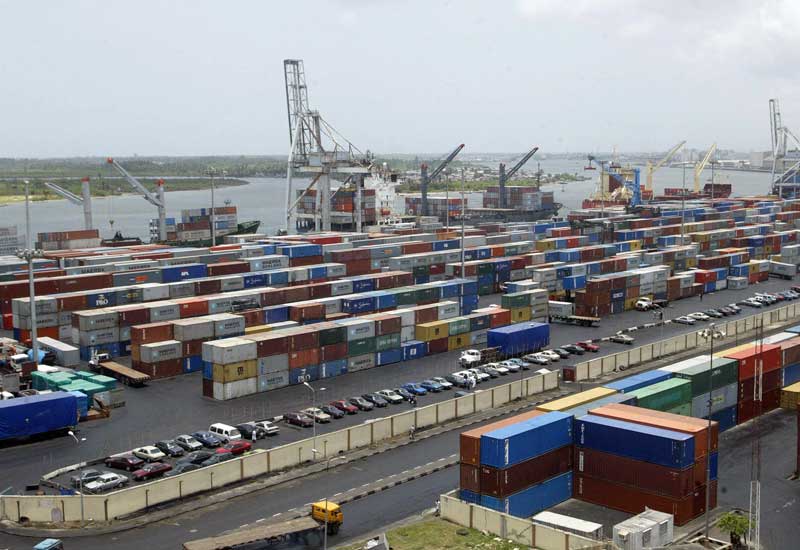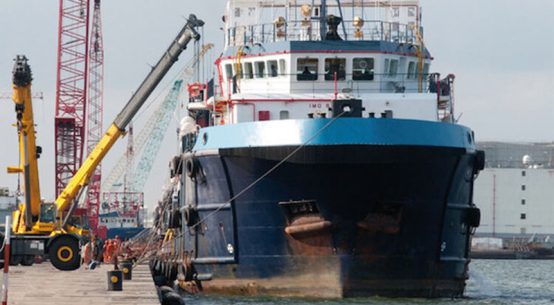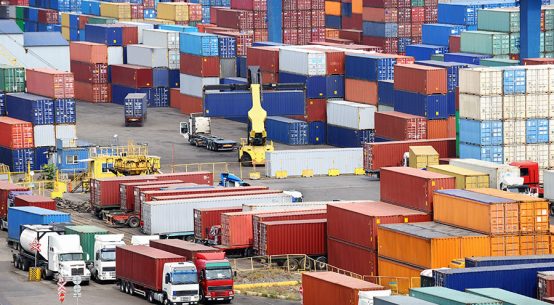
Lagos – (New Telegraph) – As inter-port competition increases and private sector investment in port facilities rise in the West African region, efficiency rating at Lagos and Tincan ports, the leaders in the region, has dropped.
Nigeria, which has the biggest seaports in terms of size and throughput among the habours in West Africa, has not played a significant regional role in transit cargo shipment to landlocked countries despite the ease of doing business introduced recently by the Federal Government.
Efficiency service at the Benin and Senegal ports, which provide transit services for non-coastal countries in the region, is higher than ports in Nigeria.
Currently, ports in Ghana, Togo and Ivory Coast are generally being viewed as the leading potential hub. Managing Director, Sceptre Consult Limited, Ayodele Jayeola, for instance, said that West African ports have been noted generally to be highly congested and inefficient when compared with ports in Europe and Asia.
However, he noted that Nigeria ports had fallen far below their global counterparts in key performance indicators. The Executive Secretary of Nigerian Shippers’ Council (NSC), Hassan Bello, said in Lagos at a stakeholders’ forum that the ports access roads were all in a very poor shape.
Bello said: “If you rate our ports based on some key performance indicators, you will discover that they are also not doing well. Let us not look at the cargo clearing time, the number of days it takes you to clear your cargo at port. “As at 2016, we were still in the range of 19 to 20 days.
As I am talking to you now, Lome port will take you three days to clear your consignment; our neighbouring port of Cotonou will take you seven days; the Port of Durban in South Africa will take you four days; the Port of Munbasa in Kenya will take six days.
“If you look at the demurrage free period, (free number of days given to an importer to take his goods away from the port before they start calculating demurrage), in Nigeria it is five days, after five days you will start paying demurrage on your consignment. But the Port of Benin gives 10 days; Port of Cameroon is 10 days; Chinghai Port in China is 10 days.
“Also looking at the free period (number of days that will stay at the port before you start paying rent) at Nigerian ports, it is around three days; Benin Port is seven days; Port of Ghana is 11 days; Cameroon is 11 days. Bello stressed that in 2014, when the shippers’ council was appointed port economic regulator, terminal handling charges in Nigeria was around N50,000.
In Cotonou Port, it used to be N24,000; in Ghana, it’s N9,773, and as I am talking to you terminal handling charges has been suspended in Ghana.
Measurement
Director General, Nigerian Maritime Administration and Safety Agency (NIMASA), Dr. Dakuku Peterside, also said that cargoes were spending nearly three weeks on average in sub-Saharan African ports, compared with less than a week in large ports in Europe, Latin America and Asia.
Peterside, who stated this while delivering a paper on the significance of maritime regulations and competitiveness of African ports at the conference on port development in Accra, Ghana, listed the competitive measures as including gross moves per hour, berth moves per hour and man-hours per move.
The director general explained that the only factor that will make the ports in Africa to be globally competitive are investments in world class infrastructure, strengthening regulatory frameworks, enhanced institutional cooperation, implementation of one-stop portals such as the national single window and adequate investment in human capital.
Similar port development projects can be found in other West African countries as there is no exclusivity in the selection of a hub by shipping lines.
The selection of a port to act as hub depends on a number of factors. In a recent survey, major shipping lines calling at West African ports were required to rank factors influential to the selection of a hub for the region.
Challenges
However, the Minister of Transport, Rotimi Amaechi, had said that the Nigerian ports could not assume the rating of world-class soon, even as shipping business continues to face series of fiscal and infrastructural challenges.
He noted: “The fact is that the issues around the maritime sector operations are too numerous to combat within a twinkle of an eye. “Turning our ports to world-class standard will not happen now, it will take time but we must start from somewhere.








